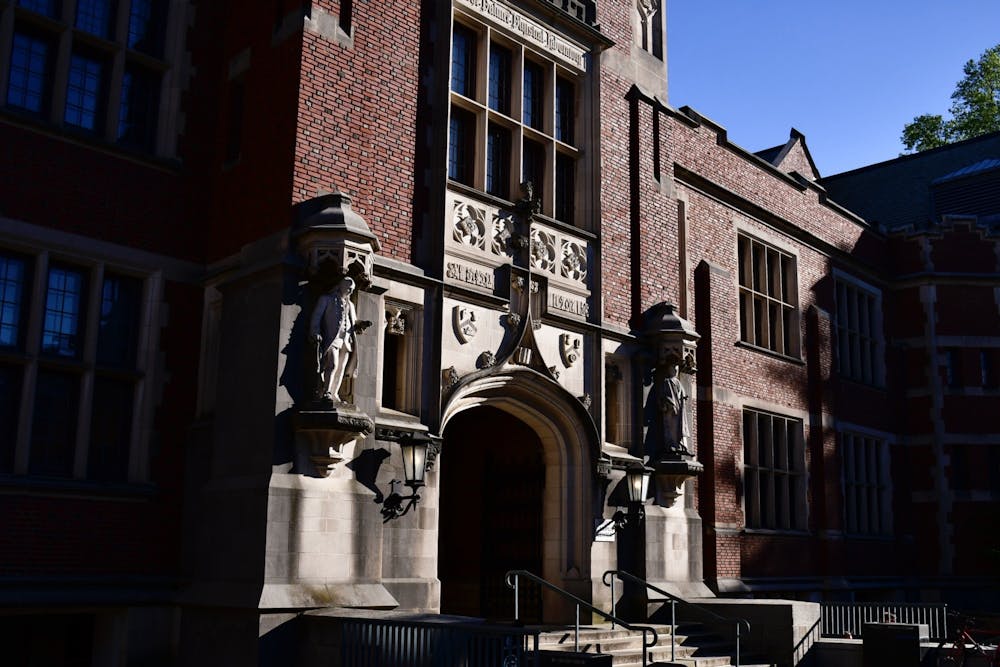Professor Carolyn Ureña ’08 always knew that the interdisciplinary study of infectious disease was important. Now, the rest of the world is catching on.
Ureña began her first-year writing seminar, WRI 163/164: Contagion, in fall 2017. The goal of the course has always been to explore the “cultural and biological meanings of infectious diseases.” Yet this semester, the course material became relevant in a way no one could have expected.
Before the semester even started, Ureña knew she didn’t want ‘Contagion’ to shy away from the unexpected. With aims to make the course as relevant as possible, as soon as she heard about the coronavirus hitting Wuhan in early January, she worked to incorporate coverage of the virus into her class.
According to Ureña, the first unit in the course planned to teach students to “challenge objectivity” in traditional and social media. COVID-19 proved itself to be a perfect starting point.
“We talk about how those narratives not only describe the transmission of diseases themselves as biological entities, but actually upon further reflection, they spread information about how we think of people from different countries, people of different races, so it actually has a story about people and values rather than just being a story about biology,” Ureña explained.
On the first day of class, Ureña asked the students to look up the “Wuhan Coronavirus” on Twitter and see what they found. It turned out to be mostly xenophobia and sensationalism.
Another day, she wrote ‘Coronavirus’ on the board and asked students to note what kinds of words appeared when looking it up in traditional media. Finding words like ‘far-away’ and ‘China’ online, Jack Shigeta ’23 remembers feeling that the coronavirus was a distant threat.
“It’s funny to me looking back because we had literally looked at coronavirus when it first started and none of us could have expected that it would lead to this,” he said.

But soon, while studying the spread of this infectious disease and the narratives around it, the material started to hit much closer to home.
Ana Blanco ’23 remembers her feelings change regarding coronavirus’ impact on her life at the University.
“I just thought it was a really cool class to be taking at the time. I was like, ‘Wow! Look at this, an actual epidemic going on and we can kind of study it without it actually affecting us.’” she said. “Then a couple of weeks after it really started to blow up, my comment about it not being a direct threat to me [was] just completely… not applicable anymore,” Blanco recalls.
Once COVID-19 became a greater threat in the United States, Ureña’s classroom became an outlet for students to share their fears and frustrations. Ureña, while always taking the time to check in with her students, took extra care this semester to ask what brought them joy in times of struggle. All of the students who spoke to The Daily Princetonian noted how much they appreciated Ureña’s care.

“She really understood that particularly stressful environment. And she really wanted to make sure that our thoughts were heard and that we were in a good mental state. And even online she still continues to do that,” said Kathryn-Alexa Kennedy ’23, a student in the course. “It was nice that this class gave us a little bit of a platform to actually talk about what was going on.”
Ureña also hoped that focusing on the content of the course would help students to feel more at ease with the situation.
“Because we have been thinking critically about media representation, I think that it helps us mitigate some of our own fears,” she said. “As the situation escalated, we were able to see a little bit more clearly what some of the key interests were for various reporters.”
However, some students struggled with this aspect of the course. Blanco found the parallels between the course material and reality very unsettling.
“It was kind of difficult to continue writing about viruses and disease and contagion because part of me was dealing with the emotion of everything not being the same and having to adapt to everything,” she said.
Even so, all of the students interviewed felt as though they gained important skills from the course, many finding that they were better equipped to parse media coverage regarding the pandemic.
“It's also been rewarding because I feel like I can critically analyze the news better, and I can really read information and know what's being said, and understand what's being said and form my own judgments. So I think that's been a really, really valuable thing,” Blanco said.
Ureña echoed these sentiments, explaining how the course was designed as “a way for students to think beyond headlines, beyond the information that they're presented with, and actually become much more critical.”
Some of that critical thinking came to fruition when a few of the students chose to conduct their own research surrounding the pandemic. One student wrote about the blow to Chinatowns across America, not because of fear of people who had been to China, but general anti-Asian sentiment. Another student is researching how Italy and Germany’s different histories with fascism have affected their very different COVID-19 death rates.
Other students, feeling overwhelmed by the constant talk of COVID-19, opted to focus their research on different topics. Kennedy is writing about stock market panics, Blanco about international aid, and Shigeta on the spread of music.
While no one could have predicted the ups and downs of “Contagion” this semester, Ureña is grateful for the support she’s seen her students show for each other and is impressed by what the class has accomplished.
“I’m just so proud of all of my students,” she said. “It's been a very difficult situation. Not only going back to various locations, but also the fact that we’re all trying our best to do the work that's in front of us, all the while having a pandemic on our mind.”








